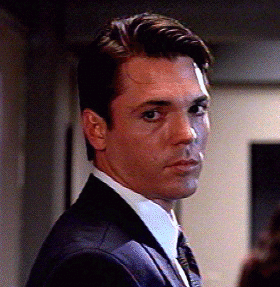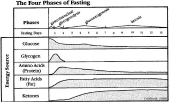

 32
32




Ask me about food.
How Permies.com Works (lots of useful links)

 8
8




This is a similar eating practice followed by Theravadin monastics—bhikkhus and bhikkhunis—who follow the dietary rules of the Vinaya, the monastic code believed to have been written by the Buddha himself. According to the Vinaya, monastics can eat food only between dawn and noon.
The lowest B.M.I.s were recorded in the fraction of people—about 8 percent of the total sample—who finished lunch by early afternoon and did not eat again until the next morning, fasting for 18 to 19 hours.
"We're all just walking each other home." -Ram Dass
"Be a lamp, or a lifeboat, or a ladder."-Rumi
"It's all one song!" -Neil Young
 6
6




A build too cool to miss:Mike's GreenhouseA great example:Joseph's Garden
All the soil info you'll ever need:
Redhawk's excellent soil-building series





 3
3




Living a life that requires no vacation.







 7
7





Ask me about food.
How Permies.com Works (lots of useful links)

 6
6




Living a life that requires no vacation.
 3
3




Whoah!! Check out this permie deal!! https://permies.com/w/homesteading-bundle?f=232
"The only thing...more expensive than education is ignorance."~Ben Franklin. "We can easily forgive a child who is afraid of the dark; the real tragedy of life is when men are afraid of the light." ~ Plato
 4
4




Iterations are fine, we don't have to be perfect
My 2nd Location:Florida HardinessZone:10 AHS:10 GDD:8500 Rainfall:2in/mth winter, 8in/mth summer, Soil:Sand pH8 Flat







 2
2




Ask me about food.
How Permies.com Works (lots of useful links)

 2
2




Julia Winter wrote:Anybody out there who has gone longer than a day?
I'm continuing with my current pattern, which isn't a true fast since I have at least 8oz of whole milk in my morning latte. I put my latte' off until 9:30am this morning so I know I went over 12 hours, but I still had one.
I made a beef stew - it is hard to cook without tasting!! I kept it to a minimum, just to taste for seasoning.
I'm curious about a longer fast, but I think it would be disruptive for my family to miss multiple meals with them. I'm not losing much weight, but I'm doing a fair amount of exercise and I *think* my waist may be smaller (pants are looser). I should have measured my waist.... Anyway, I'm definitely not wasting away.
Whoah!! Check out this permie deal!! https://permies.com/w/homesteading-bundle?f=232
"The only thing...more expensive than education is ignorance."~Ben Franklin. "We can easily forgive a child who is afraid of the dark; the real tragedy of life is when men are afraid of the light." ~ Plato
 4
4





 10
10











 7
7




stephen lowe wrote:I used to do a once yearly fast of between 5 and 10 days. It always made me feel really good and clear and felt like it would sort of reset my whole system. I have done the master cleanse where you drink salt water in the morning, then this lemon, maple syrup, and cayenne drink all day, and a glass of senna tea at night. I have also done just herbal tea and water during the fast. There is a certain clarity mentally that comes around 5 days into the fast that I haven't experienced any other way and is accompanied by really high energy.
Ask me about food.
How Permies.com Works (lots of useful links)








 4
4




Judith Browning wrote:I don't eat just one meal a day but like the long fast between meals.
I wake really early so my eating hours are ideally from 6am until 2pm....leaving a 16 hour fast.
It does keep my weight where I'm most comfortable.

Ask me about food.
How Permies.com Works (lots of useful links)

 4
4











 2
2




Ask me about food.
How Permies.com Works (lots of useful links)

 3
3




My Food Forest - Mile elevation. Zone 6a. Southern Idaho <--I moved in year two...unfinished...probably has cattle on it.
 5
5




Julia Winter wrote:
I'm very curious about the high energy thing. I've read this is because you get higher background levels of norepinephrine. Plato was in favor of fasting because of its effects on the mind. People say that if you go on an extended fast, the hunger drops off by day 3, was that your experience?
There's a cancer researcher who suggests that a yearly week long "water fast" can help in controlling cancer. If you subscribe to the idea that little cancers are arising all the time in our bodies and are usually found out and eliminated by our immune system, this could make sense. First, cancers tend to require glucose for fuel, so going ketotic may literally starve the tumor and second, after a few days the body begins a process of autophagy, where it is scrounging around for protein/amino acids. Dr. Fung says that none of his extreme weight loss patients have had to have plastic surgery to reduce excessive skin, like you see sometimes from other weight loss methods. The excess skin is consumed by the body as the fast continues.
 5
5




stephen lowe wrote:
I don't know the source of the extra energy but I sort of perceived it as your body becoming fully geared up in the fat burning department. There is a noticeable spike in mental energy and clarity that for me borders on a mania
 2
2




 4
4




Come join me at www.peacockorchard.com







 6
6




Davis Tyler wrote:I suspect there's a strong evolutionary component here - a hunter-gatherer experiencing a day or two of unsuccessful forays would need to become more alert, focused, and energetic in order to get back out there and kill something. Many people people who have never tried fasting assume that you will become lethargic as a result...in that were the case, we would have gone extinct long ago.
Ask me about food.
How Permies.com Works (lots of useful links)








 5
5




Ask me about food.
How Permies.com Works (lots of useful links)







 3
3




Julia Winter wrote:They talk about how fasting can be an anti-aging strategy. Anti-cancer, anti-Alzheimers, anti-diabetes. . . . it almost makes me want to try an extended fast.
My Food Forest - Mile elevation. Zone 6a. Southern Idaho <--I moved in year two...unfinished...probably has cattle on it.




Whoah!! Check out this permie deal!! https://permies.com/w/homesteading-bundle?f=232
"The only thing...more expensive than education is ignorance."~Ben Franklin. "We can easily forgive a child who is afraid of the dark; the real tragedy of life is when men are afraid of the light." ~ Plato
 1
1




bob day wrote:Ok, some free advice and worth every penny.
webpage Seriously, this is science based nutrition based on an MD presenting the latest and best science.
 2
2








Maybe Life is always like being on a trapeze or a tightrope at the circus...







 4
4




Ask me about food.
How Permies.com Works (lots of useful links)

 7
7




Julia Winter wrote:Eat, Fast & Live Longer

Tune in to Maple Grove Productions for homesteading videos, a weekly VLOG, documentaries, permie spotlights and more!
 2
2




Maybe Life is always like being on a trapeze or a tightrope at the circus...
 2
2




Carry on...




 5
5




Dave's SKIP BB's / Welcome to Permies! / Permaculture Resources / Dave's Boot Adventures & Longview Projects














 1
1




Cultivate abundance for people, plants and wildlife - Growing with Nature



 1
1




 2
2




Vic Johanson
"I must Create a System, or be enslaved by another Man's"--William Blake








 4
4




 4
4




Joylynn Hardesty wrote:I've been considering a 12 to 18 hour daily fast for a variety of reasons. For additional reasons I must consume a significant amount of herbs in capsule form... spread out thought the day. Would it be correct that the herbs would not be counted as breaking this fast?
Vic Johanson
"I must Create a System, or be enslaved by another Man's"--William Blake
 2
2




Chris Wang wrote:Are their any benefits of longer fasts that you don't get by eating once a day? I don't have any trouble losing weight, are there other advantages to fasting 2+ days?
Slightly off topic, but one other thing I have often wondered about is if it ideal to eat meals that contain a mixture of different food types eg. meat and vege at the same time. Wouldn't we digest food better eating meat and veges (even different types of plants) as separate meals, as I assume we have an evolutionary history of doing? For example have a vegan meal, carnivore meal, vegan meal, carnivore, carnivore, leafy food, carnivore, tubers, carnivore, carnivore, fruit... etc. While something like a chimp is a fair way off a human they don't appear to gather fruit to save for when they catch a monkey to snack on.
Maybe Life is always like being on a trapeze or a tightrope at the circus...

|
Last year, this tiny ad took me on vacation to Canada
Large Lot for Sale Inside an Established Permaculture Community — Bejuco, Costa Rica
https://permies.com/t/366607/Large-Lot-Sale-Established-Permaculture
|




